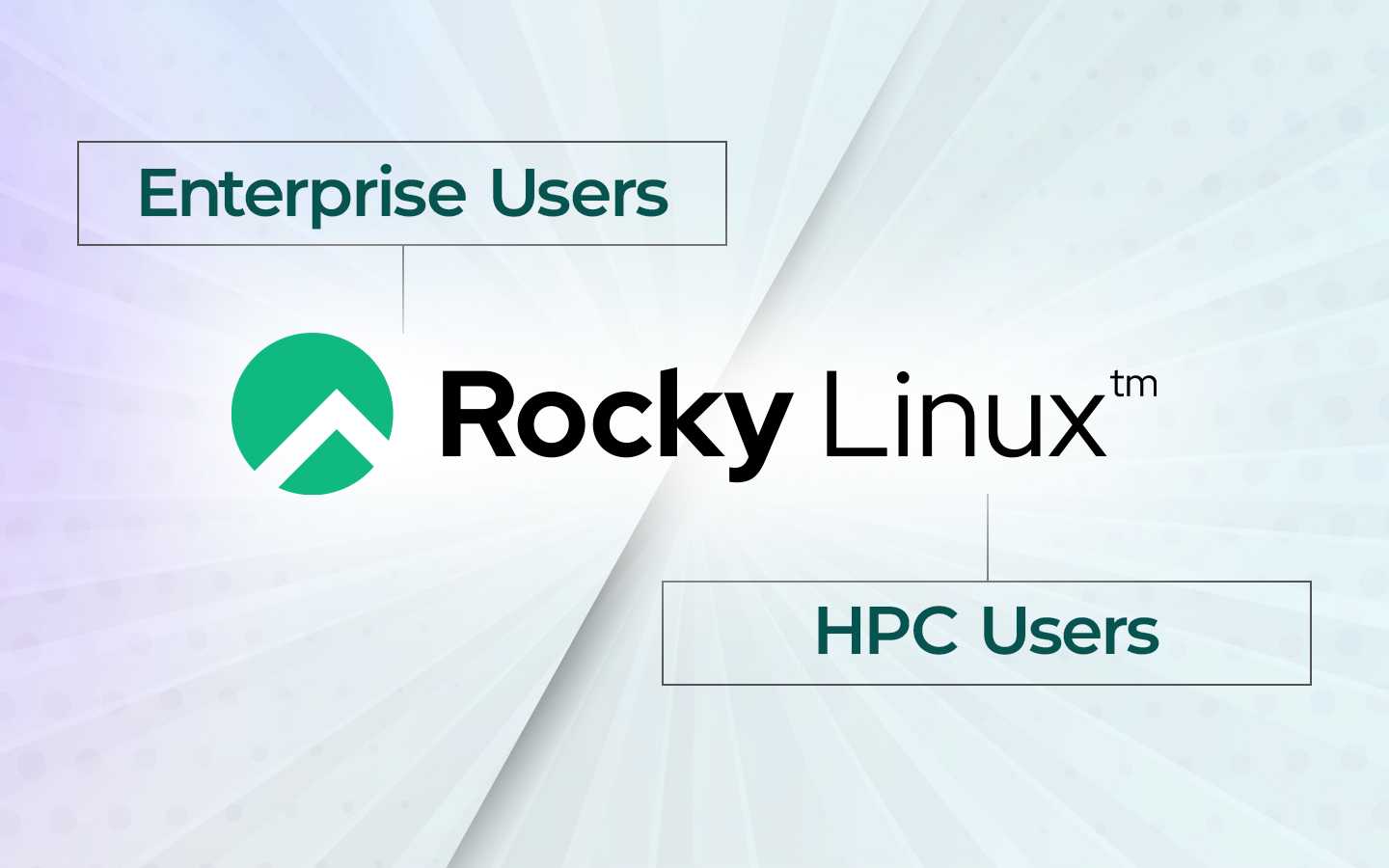3 min read
Rocky Linux: Unmatched Stability for Both Enterprise and HPC Users

As the demand for stable, reliable, and secure enterprise-grade operating systems continues to rise, Rocky Linux has emerged as a top contender among community-driven Linux distros. Now the fastest-growing Enterprise Linux distribution, Rocky Linux is widely adopted in enterprise, cloud, hyperscale, and High Performance Computing (HPC) environments. In this post, we'll explore the reasons why Rocky Linux is considered a top community-driven Linux distro for both enterprise and HPC use, with a focus on stability, security, and long-term support.
-
Focus on stability: Rocky Linux was created with stability as one of its primary objectives. The development team behind the operating system has been careful to ensure that every aspect of the system is thoroughly tested and vetted before release. This includes the selection of packages, the development of tools and utilities, and the overall architecture of the system. The result is a highly reliable and stable Linux distribution that is ideal for use in production environments. The operating system is built to be robust, reliable, and secure, ensuring that it can withstand heavy workloads and critical applications without any issues.
-
Security: Security is a critical aspect of any operating system, and Rocky Linux has taken several measures to ensure that users have a secure and reliable platform. Rocky Linux is designed to receive regular updates and security patches, ensuring that the operating system is secure and stable at all times. Recently, Rocky Linux achieved the latest milestone in the FIPS 140-3 validation process: being named to the NIST Implementation Under Test List. This extensive validation process is being underwritten by CIQ as a gift to the community.
Doubling down on our commitment to full open source reproducibility of the most current Rocky Linux bug fixes, security patches, and feature enhancements, our engineers have released the Rocky Linux 9 errata subsystem as an open source project and have fully integrated it with the open source build system Peridot. The Rocky Linux 9 errata is now available through the Rocky Enterprise Software Foundation (RESF), which will continue to maintain the project.
-
Community-driven development: Another factor contributing to the stability of Rocky Linux is its development process. At CIQ, the Open Source Ethos informs all that we do. Rocky Linux is developed using a transparent and collaborative approach that encourages community involvement. This allows for a more diverse range of skills, expertise, and perspectives to be brought to the project, resulting in a more stable and reliable operating system. Community-driven development also means that bugs and issues are identified and addressed quickly, with the help of a wide range of experts from the Linux community. The development team is highly responsive to feedback and input from users, which helps to ensure that any issues are quickly identified and resolved.
-
Built from the same source as RHEL: Rocky Linux is 100% bug-for-bug compatible with RHEL, meaning that it has the same level of stability and reliability. The team behind Rocky Linux has taken the time to ensure that their implementation of RHEL is free of bugs and issues that could compromise the stability of the system. As a result, users can expect a level of reliability that is comparable to RHEL, with the added benefits of no licensing fees, community-driven development, lower TCO, greater freedom, increased transparency, and enterprise-level support.
-
The structure of RESF and the Rocky project precludes individual or corporate dominance. At the technical level, Rocky/RESF built all of its infrastructure from scratch, using only open source tooling and engineering staff that are also part of the community. All Rocky Linux releases are reproducible to the point where other people can re-make/re-spin Rocky themselves.
At the governance level, the RESF charter and bylaws were written such that neither Rocky Linux nor any RESF project will ever be controlled, purchased, or otherwise influenced by a single entity or individual. For example, all board seats are voted by peers based only on merit. No board seats are ever purchased or bought, and no single company can represent more than one-third of any voting board. Furthermore, everything is done 100% in the open. From build discussions, notes, and documentation, to the SRPMS themselves, everything RHEL does is in the open and completely transparent.
-
Long-term support: At CIQ, our goal is to add value on top of Rocky Linux and other key open source technologies in the form of escalation support, customization, optimization, integration, and professional services. Rocky Linux is designed to have long-term support; each major version will be supported for 10 years after its release. Rocky Linux 8 will be supported from 2021 (inception) to 2029. Rocky Linux 9 was released in 2022 and will reach end-of-life in 2032. Beyond this, CIQ offers extended support options for Rocky Linux. This ensures that organizations can rely on the operating system for many years without having to worry about upgrading or migrating to a new system.
Linux has always been about choice. Each Linux distribution offers something different; what’s important is that you choose the right option that meets your needs. That being said, if you're looking for a stable, reliable, secure, compatible, and free Linux distribution, Rocky Linux is definitely worth considering.
Reach out to us if you’d like to learn more about our Rocky Linux support offerings.
Built for Scale. Chosen by the World’s Best.
1.4M+
Rocky Linux instances
Being used world wide
90%
Of fortune 100 companies
Use CIQ supported technologies
250k
Avg. monthly downloads
Rocky Linux



